Keywords are the "backbone" of every SEO strategy and web content. Whether you are building a sharing blog, a sales website, or a service page, keywords always play a key role in bringing your content to the right readers, meeting the right search needs.
But keywords are not just about stuffing a few phrases. It needs to be researched, selected and intelligently deployed to become a "guide" for both Google and users.
The article below will help you:
- Understand the importance of keywords in web content.
- Discover keyword types – and the specific roles of each type.
- Know how to use keywords to increase your chances of getting to the top of Google.

What Are Keywords? – A Basic But Essential Concept
Keywords are the words or phrases that users enter into search engines (Google, Bing...) when they are looking for information.
For example: “SEO services”, “how to write SEO-standard articles”, “how to optimize a website”.
- Keywords help Google understand what your content is about.
- Therefore, it is a bridge between searchers and your content.
Why Are Keywords Important in Web Content Development?
Helps Define the Topic of the Article
- Before writing an article, you need to know what the goal is, what the reader is looking for.
- Keywords are an important suggestion to help you build appropriate article topics and content.
Guides Google to Understand Content
- Google reads website content through metrics (meta title, heading, URL, paragraphs...).
- When keywords are placed appropriately, Google will understand what topic you are talking about, thereby ranking more accurately.
Increase the Chance of Appearing in Search Results
- When your content contains the correct & relevant keywords, Google will prioritize displaying it when users search.
- This helps increase traffic, attracting more potential customers.
Stimulates Users to Click on Articles
- If the title & description contain the exact keywords they are looking for → increases the CTR (click-through-rate).
In short: Keywords are the foundation – the roadmap for Google & users to access your content.

Important Keyword Types in Web Content Development
To understand the role of keywords, let's go through the basic types of keywords:
Primary Keyword
- Is the central keyword – the main topic of the article.
- Usually has high search volume, directly related to the topic.
For example: “role of keywords”.
Secondary Keywords
- Are keywords that expand or are directly related to the primary keyword.
- Helps expand content, avoiding repeating the main keyword too much.
For example: “how to choose keywords”, “the importance of keywords in SEO”.
Long-Tail Keywords
- Are long keyword phrases (3 words or more), more specific, less competitive.
- Focus on detailed needs, helping to reach users with clear goals.
For example: “how to use long tail keywords in SEO”.
LSI Keywords (Related Context)
- LSI (Latent Semantic Indexing) – semantically related keywords.
- Helps Google understand the context of the content, avoiding keyword stuffing.
For example: “Onpage SEO”, “website traffic”, “web content”.

Specific Roles of Each Keyword Type
Primary Keywords – Define Content “Pillars”
- Is the central topic.
- Helps Google identify the main topic.
- Helps keep content focused, avoiding rambling.
Secondary Keywords – Expand Content, Increase Topic Links
- Helps avoid repeating the main keyword too much.
- Makes content richer and more natural.
- Helps Google “recognize” content more comprehensively.
Long-Tail Keywords – Optimize for Specific Search Intent
- Targets the specific needs of users.
- Low competition, easier to get to the top.
- Helps attract higher quality customers (they already have specific needs).
LSI Keywords – Clarify Context, Avoid SEO Errors
- Helps Google accurately understand the topic of the content.
- Helps the article be natural, avoiding “keyword spam”.
- Increases the “trust score” of the article.
The Role of Keywords in Onpage SEO Factors
In the Title
- A title containing the main keyword helps Google & users recognize it quickly.
Tip: place the keyword as close to the beginning of the title as possible.
In Meta Description
- A description with keywords helps increase CTR – because users will see content that matches their needs.
In URL
- A concise URL containing the main keyword helps Google prioritize it more.
In Heading (H1, H2, H3)
- A heading containing keywords helps Google understand the structure of the article.
- Headings with secondary keywords – support expanding the content.
In Content
- Keywords should appear naturally, without stuffing.
Reasonable density: 1–2%/article.
In Image (Alt Text)
- Keywords in image descriptions help with image SEO – increasing traffic from Google Images.
In Internal Link & External Link
- Keywords inserted in anchor text help Google understand that the link is valuable & relevant.
Thus, keywords are not just "words" – but an element that helps connect the entire content structure.
Common Mistakes When Using Keywords
- Keyword stuffing – Google will penalize you!
- Choosing keywords that are not relevant to the content.
- Not updating new keywords, leading to obsolescence.
- Only focus on main keywords, ignoring secondary/LSI keywords.
To avoid mistakes, remember: Choose – Allocate – Deploy keywords naturally and balanced!

Guide to Using Keywords Effectively in Web Content Development
Step 1: Keyword Research
Use tools like Google Keyword Planner, Ahrefs, SEMrush…
Choose keywords that have:
- Suitable search volume.
- Competition is not too high.
- Suitable for the searcher's purpose.
Step 2: Keyword Classification
- Identify main keywords – secondary keywords – long-tail keywords – LSI.
- Create a keyword allocation table for each content section.
Step 3: Write Content Based on Search Intent
- Content not only “stuffs keywords” but also solves user problems.
- Arrange headings clearly and easy to read.
Step 4: Onpage SEO Optimization
- Keywords appear naturally in: title, heading, beginning, middle & end of the article.
- Optimize internal links, external links.
Step 5: Update, Recheck
- Track keyword effectiveness via Google Search Console.
- Periodically re-optimize – so that keywords are always “healthy” & the article stays on top sustainably.
Combining Keywords With a Comprehensive Content Strategy
Keywords – “Guides” for Content Planning
Once you have a list of keywords, you will easily build a content roadmap:
- Write detailed blog posts according to each long-tail keyword.
- Build a landing page for the main keyword.
- Create a series of related articles, secondary keywords.
Helping your website develop a synchronized content system – conquering Google & customers.
Keywords – Online Marketing Bridge
Keywords don't just help with SEO.
It also supports:
- Google Ads advertising – the right keywords help advertise to the right audience.
- Social media – keywords help you choose content that attracts viewers.
- Email marketing – email subject revolving around keywords, increasing open rates.
Keyword Trends in 2025 – Don't Miss Out!
- Voice Search Keywords: The trend of searching by voice is increasing strongly – long, natural, question-form keywords.
- Local Keywords: “near me”, “in Ho Chi Minh City”… – supports Local SEO very well.
- Experience-based Keywords (User Intent): Google prioritizes keywords that solve clear needs – not just high volume.
Always update & optimize keywords according to trends to be sustainable on Google.
Summary of the Role of Keywords
- Keywords are the “backbone” of SEO & web content.
- Helps orient content, reach Google top, attract the right audience.
- Use it correctly – the article will “rise”; use it incorrectly – it's easy to get penalized by Google!
Turn keywords into a “weapon” to make your content stand out and be effective!
Contact Us for Keyword Optimization Advice – Professional Website SEO
You are:
- Want to optimize content & keywords but don't know where to start?
- Need a professional SEO unit to support you?
Contact us immediately:
MIMA TRADING SERVICE COMPANY LIMITED
🌐 Website: https://mimadigi.com
📍 Address: Hoc Mon, Ho Chi Minh City
📞 Hotline/Zalo: 0909 035 333
📧 Email: info@mimadigi.com
MIMA's team of SEO & content experts will help you:
- Research & analyze standard keywords.
- Build an optimal content strategy.
Bring your website to the top sustainably – increase customers!

Frequently Asked Questions About Keywords in Web Content
How many times is a keyword reasonable in an article?
Best 1–2% of the total number of words. What is important is that keywords are natural & logical, not stuffed.
How often do you need to update your keyword list?
You should update every 3–6 months, or when there are major changes (new services, new trends...).
Is it enough to just focus on the main keywords?
No! There must be secondary, long & LSI keywords to increase naturalness & avoid spam.
Which tool to use to research keywords?
Some good tools:
- Google Keyword Planner (free).
- Ahrefs, SEMrush, Ubersuggest (professional).
- Google Search Console (tracking real-world performance).
Keywords are not just words, phrases – they are a strategy that helps:
- Create quality & useful content.
- Meet the needs of customers.
- Bring your website to the top of Google – build a sustainable brand.
If you need support building a comprehensive SEO plan and optimizing keywords, let MIMA TRADING SERVICE COMPANY LIMITED be your partner.
📞 Call now 0909 035 333 – to make your content “touch the top” of Google!
MIMA DIGITAL TECHNOLOGY SERVICE CO., LTD
- Tax ID: 0318672839
- Address: Hóc Môn District, Ho Chi Minh City
- Hotline/Zalo: 0909 035 333
- Email: info@mimadigi.com
- Website: https://mimadigi.com




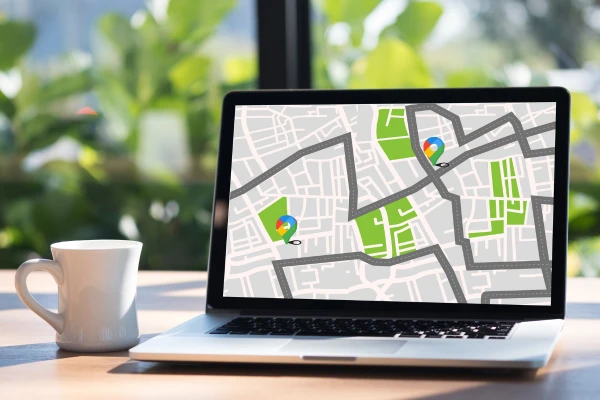






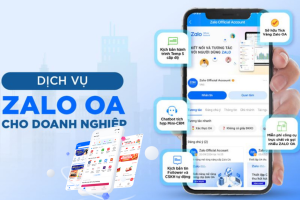
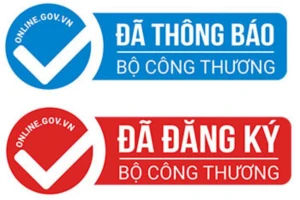
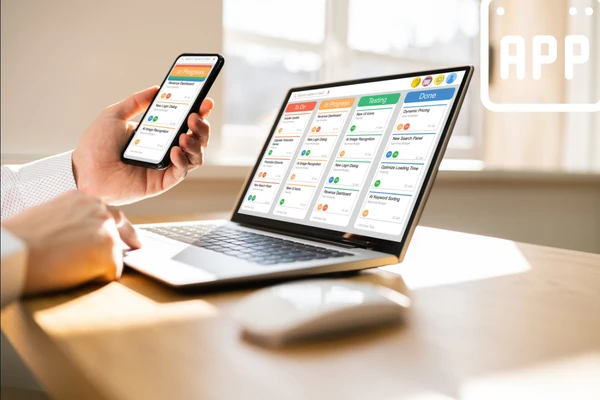

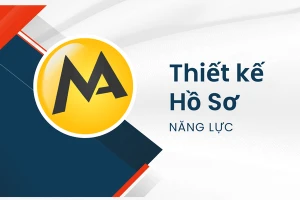










Share your review